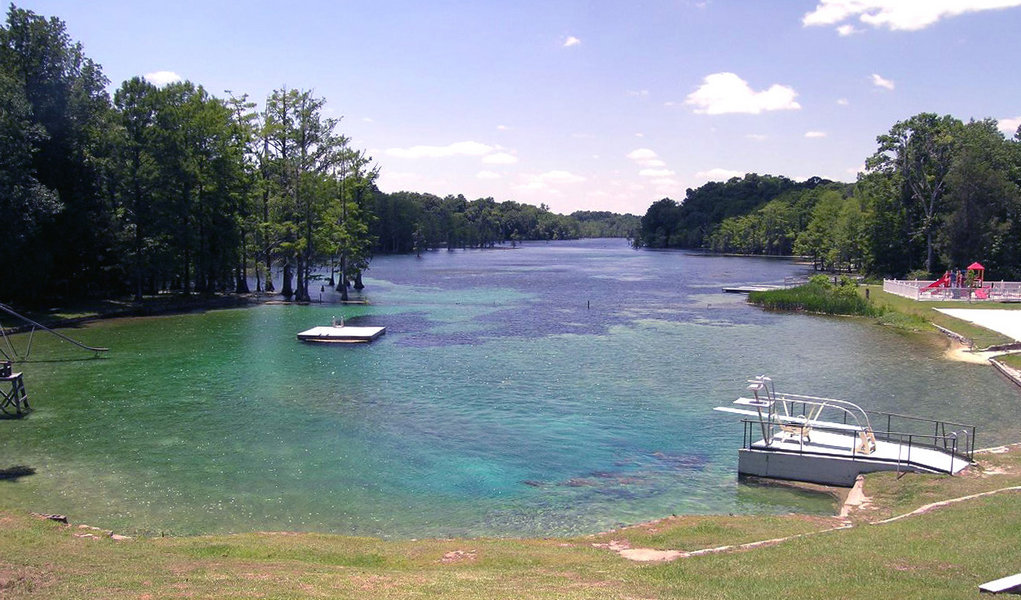Public Service Commission | Department of Health | Department of Agriculture and Consumer Services | Department of Economic Opportunity (formerly Department of Community Affairs)
Public Service Commission
The Public Service Commission (PSC) has concentrated its efforts to promote water conservation and reuse of reclaimed water by developing formal lines of communication and coordination with DEP and the water management districts (WMDs). PSC also establishes conservation-oriented rate structures, when appropriate, and allows recovery of conservation program expenses in rates. PSC has been actively involved in the development of a statewide water conservation plan with DEP and the WMDs, and has entered into Memoranda of Understanding (MOU) with DEP and WMDs addressing water conservation and reuse issues.
Reuse rates, as well as other rates for investor-owned utilities, are regulated by PSC. While PSC reviews investment in lines and treatment plant in order to determine the amount of "used and useful" plant (the plant necessary to serve the current customers, plus an allowance for growth) to be recovered in rates, Florida Statutes require 100 percent of reclamation plant costs to be recovered. The statutes also provide for reuse costs to be recovered from a utility’s potable water, wastewater or reclaimed water customers or any combination thereof as the commission deems appropriate. High-quality reclaimed water used to irrigate a golf course conserves higher-quality drinking water in the aquifer. Sharing reuse costs between the potable water, wastewater and reclaimed water customers is justified on the basis that all customers, including potable water customers, benefit from the preservation of the aquifer.
Pursuant to the MOU between PSC and DEP, PSC will provide feasibility analyses of the financial impacts of reuse projects on both the customers and the wastewater utilities. The MOU also provides that PSC and DEP, when appropriate, will jointly conduct meetings with customers to inform them of the need for reuse projects and the potential impact the projects will have on service rates.
For more information, visit the PSC website.
Department of Health
The Florida Department of Health (DOH) is represented on the State’s Reuse Coordinating Group. The Department of Health and Rehabilitative Services’ (the predecessor agency of DOH) state virologist played a critical role in the development of the state’s high-level disinfection requirements for protecting public health. Reclaimed water regulated by Part III of the Florida Administrative Code must meet the high-level disinfection requirements producing an essentially pathogen-free product that meets many of the primary and secondary drinking water standards (even though it is not intended for drinking water purposes).
To further protect public health, DEP district offices must provide the appropriate county health departments with a copy of the notice of intent to issue a permit, along with the draft permit, for all new or expanded reuse systems. In addition, the revisions to Chapter 62-610, F.A.C., that were adopted in 1999 require applicants for certain ground water recharge and indirect potable reuse permits to notify county health departments during the planning stages of their project.
For more information, visit the DOH website.
Department of Agriculture and Consumer Services
The Florida Department of Agriculture and Consumer Services (DACS) has limited involvement in the state’s reuse program. DACS is represented on the state’s Reuse Coordinating Group. By serving on the group, DACS brings the reuse issues and concerns of agricultural farmers before the group and is able to keep the farmers and DEP up to date on reuse issues.
For more information, visit the DACS website.
Department of Economic Opportunity
The Florida Department of Economic Opportunity (DEO), formerly known as the Department of Community Affairs, joined the state’s Reuse Coordinating Group in 1999. DEO has coordinated efforts with DEP to make the state’s building codes consistent with the Florida Statutes and the Florida Administrative Code regarding indoor uses of reclaimed water.
For more information, visit the DEO website.


